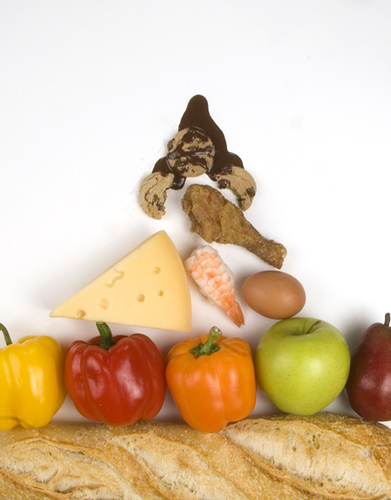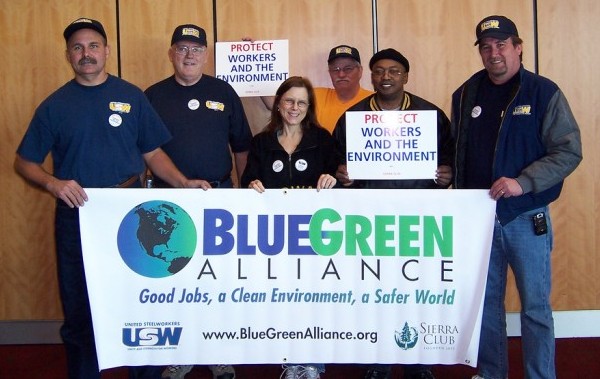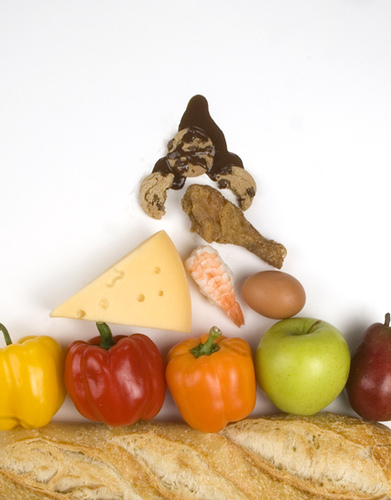 Photo: Beth RankinThe Food Safety Enhancement Act of 2009 (FSEA) draft, was introduced in the House of Representatives by Congressman Waxman on May 26, 2009 and is expected to move quickly through the House. Consumers, farmers, and manufacturers alike all appear to be for a food safety bill, so the question is not whether a bill will be approved, but whether it will make our food safer.
Photo: Beth RankinThe Food Safety Enhancement Act of 2009 (FSEA) draft, was introduced in the House of Representatives by Congressman Waxman on May 26, 2009 and is expected to move quickly through the House. Consumers, farmers, and manufacturers alike all appear to be for a food safety bill, so the question is not whether a bill will be approved, but whether it will make our food safer.
Our food system is seriously broken in places, and at first glance, many elements of the FSEA are hard to argue with. For example, the bill would provide the FDA with mandatory recall authority, allow for more frequent inspections and institute traceability requirements so that the source of tainted foods can be more easily tracked. These measures might have helped lessen the impact of recent cases like Peanut Corporation of America (PCA), in which salmonella contamination sickened close to 700 people and caused 10 deaths (although it should be noted that the bill does not require microbial testing for pathogens).
While there are glaring inspection, reporting and accountability problems that need to be firmly addressed, traceability alone will not necessarily protect consumers. In fact, the PCA case exemplifies one of the primary failings of our food system: centralization in which a single entity can sicken so many people so geographically dispersed so quickly. In most of the recent food scares, centralized processing and distribution have been found to be the source of the problem, not growing and harvesting.
Reforming our food system means creating systems that support decentralized food processing and distribution, as well as sustainable production methods like organic and regional and local food.
Michael Pollan eloquently stated the need for decentralization or re-regionalization of our food system in his October 12, 2008 New York Times Magazine letter to, then, President-Elect Obama:
“A decentralized food system offers a great many…benefits… Food eaten closer to where it is grown will be fresher and require less processing, making it more nutritious. Whatever may be lost in efficiency by localizing food production is gained in resilience: regional food systems can better withstand all kinds of shocks. When a single factory is grinding 20 million hamburger patties in a week or washing 25 million servings of salad, a single terrorist armed with a canister of toxins can, at a stroke, poison millions. Such a system is equally susceptible to accidental contamination: the bigger and more global the trade in food, the more vulnerable the system is to catastrophe. The best way to protect our food system against such threats is obvious: decentralize it.”
Consumers are already seeking stronger connection to their food. The increased number of farmers’ markets and CSAs (Community Supported Agriculture) points to the renewed interest and value consumers place on buying fresh, local food directly from the producer. There is an implicit accountability for food safety in these direct transactions.
While buying food directly is not feasible on a day-to-day basis for most consumers, they still deserve the same level of accountability for food safety. Small farmers and producers that sell to food cooperatives and other grocers have demonstrated such accountability. That is not to say that no regulation is needed for small farmers and producers, but rather the larger focus of regulation should be directed towards the biggest problem areas that have the widest reach.
In addition to helping foster local and regional food systems, regulation should also support the environmental and health benefits of sustainable and organic food systems and the benefits of biodiversity, which Pollan alluded to above.
Government regulations and requirements tend to be scaled to the largest farmers and producers. In many cases, the fees and purchases required for compliance are prohibitive for small operators—many of whom implement practices superior to those required by the FDA—and threaten to put them out of business. Our systems need to support the small family farmers and producers who are already doing the right thing. Our approaches need to be scale neutral or at least scale appropriate, and promote biodiversity.
Consumers have the right to safe food. We need a system that minimizes risks and maintains public confidence in our food supply. And we need to make sure that whatever regulations we put in place are enforceable with appropriate resources allocated towards this end. But, let’s be sure that the regulations we adopt focus on our biggest food safety problems and help foster, or at least do no harm, to the many good practices that exist in our food production system.



